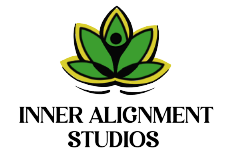Reiki healing has gained popularity as a holistic approach to wellness, but many people wonder if it is safe for everyone. In this blog, we will explore the safety of Reiki healing and who can benefit from it.
Understanding Reiki Healing
Reiki is a form of energy healing that involves the practitioner transferring energy to the client through touch. It aims to promote relaxation and healing.
Originating from Japan, Reiki combines ancient techniques to harness universal energy. This energy is thought to help clear blockages, enabling the body to heal itself naturally.
One of the most appealing aspects of Reiki is its gentle approach. Unlike more invasive treatments, it doesn’t require the practitioner to manipulate the body physically, making it accessible to a wide audience.
Furthermore, many people find the process of receiving Reiki incredibly soothing, often describing it as a warm, comforting experience. This initial sense of peace can set the stage for deeper healing.
Who Can Benefit from Reiki?
Reiki may be particularly helpful for those dealing with stress, chronic pain, anxiety, and more. It can complement traditional medical treatments.
Interestingly, Reiki is not limited to people with ailments. Many individuals seek Reiki for general wellness and to enhance their overall quality of life, finding it a wonderful tool for self-care.
Furthermore, Reiki has shown positive effects across various demographics, including children, pregnant women, and the elderly, making it quite versatile. It’s adaptable to different ages and needs.
In short, whether you’re looking to manage a specific health issue or simply wish to relax and rejuvenate, Reiki can offer valuable benefits. Its approach is holistic, catering to mind, body, and spirit.
Are There Any Risks Involved?
Reiki is generally considered safe, but some individuals may experience temporary discomfort. Those with specific health conditions should consult a professional.
For instance, some people might feel tired or a bit emotional after a session. This could be part of the healing process, but it’s essential to notice how you feel and communicate with your practitioner.
Moreover, if you have particular medical conditions, it is crucial to inform your Reiki practitioner. They can modify their approach to ensure your session aligns with your health needs.
Ultimately, the decision to engage in Reiki should come with awareness. Recognizing your body’s signals will help you navigate any potential discomfort or side effects while maximizing the benefits.
Consultation and Professional Guidance
Before starting Reiki healing, it’s advisable to consult with healthcare providers, especially for individuals with serious medical issues or mental health conditions.
This consultation can provide peace of mind and ensure that you are making informed decisions about your wellness journey. Engaging with both medical and holistic practices can enhance your overall health.
Additionally, reputable Reiki practitioners will often encourage a discussion about your medical history and current health conditions. This dialogue is vital in tailoring a session to fit your specific needs.
The collaboration between conventional medicine and alternative practices like Reiki can lead to more comprehensive care. Understanding how these modalities work together is essential for safety and effectiveness.
Personal Experiences and Anecdotes
Many individuals share positive experiences with Reiki healing. Personal anecdotes can provide insight into how it works for different people.
For example, some clients report a profound sense of relaxation and clarity after sessions, often stating that they feel lighter emotionally and physically. Such transformations can be quite inspiring.
Moreover, stories of those who have turned to Reiki during challenging life events or health crises often reveal its potential to provide comfort and hope. These narratives underscore the emotional support Reiki can offer.
As you consider Reiki, remember that everyone’s experience is unique. Listening to the experiences of others can help you form realistic expectations about what Reiki might bring to your life.
Final Thoughts on Reiki Healing Safety
In conclusion, while Reiki healing can be safe and beneficial for many, it may not be suitable for everyone. It’s essential to approach it with care and consult professionals when needed. Always prioritize your health and well-being.


